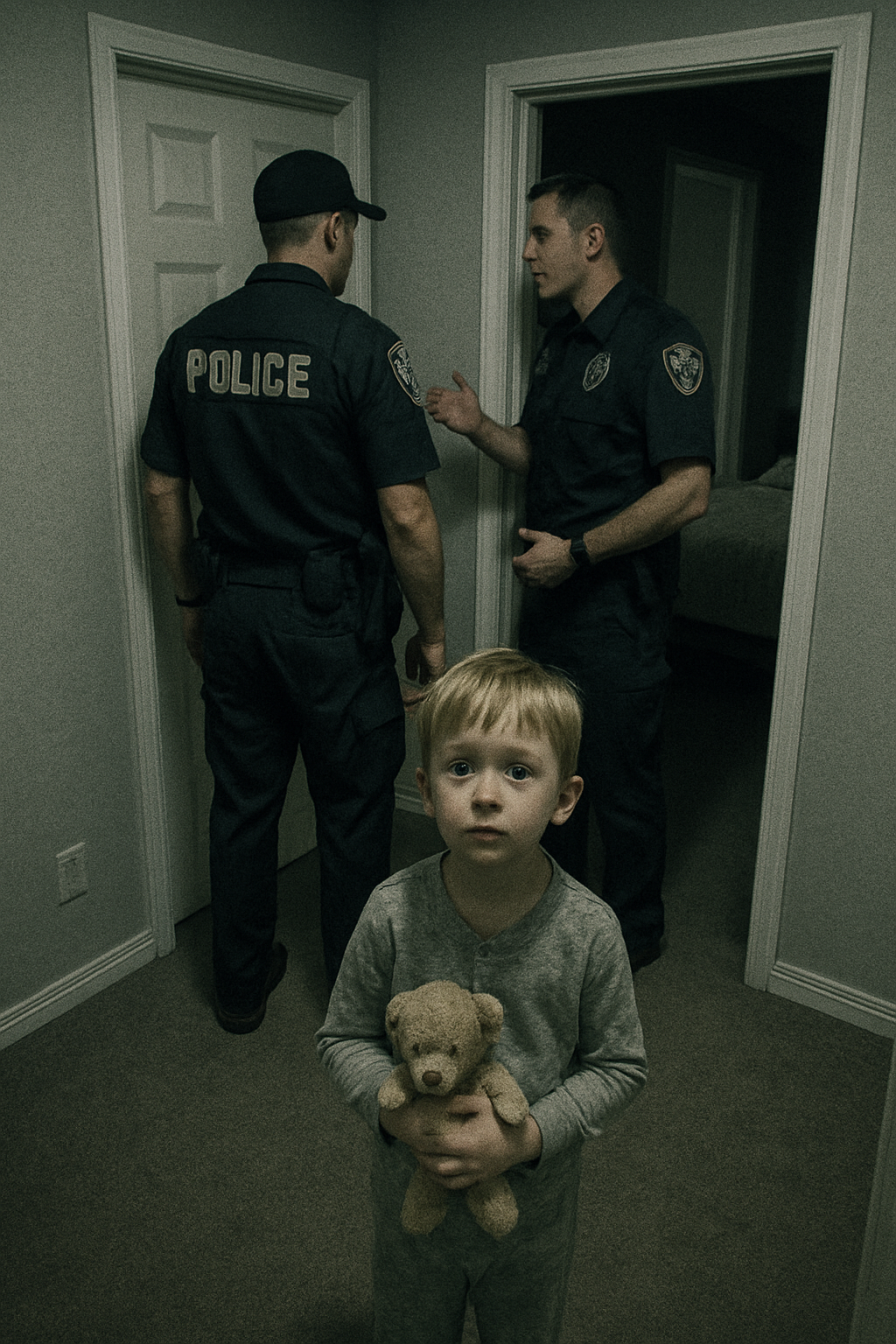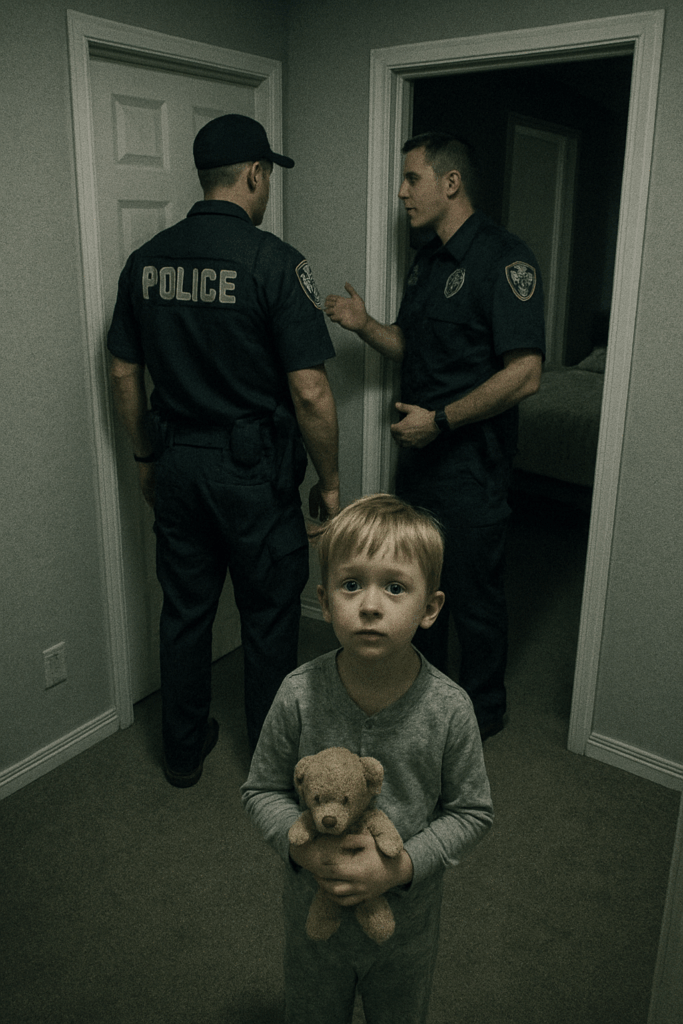A Frightened Boy Whispered Into the Phone, ‘Please Help My Parents.’ Minutes Later, Police Opened Their Bedroom Door—And What They Saw Left Everyone Frozen in Place.
Every officer knows that when a 911 call comes from a child, the atmosphere shifts. Dispatchers sit straighter. Officers listen harder. Because kids don’t embellish—they plead.
That night, just after 10:45 p.m., the call came in.
“911, what’s your emergency?”
A pause. Then a fragile voice whispered:
“Please… come quickly. My mom and dad… they’re in the bedroom.”
Then silence. Only the sound of a boy’s uneven breathing.
The dispatcher tried to keep him talking, but the line clicked dead.
Within minutes, two patrol cars raced through the quiet Chicago suburb.
The porch light flickered weakly, casting jagged shadows across the small front yard. And there he was—the boy.
Eight years old, maybe nine. Pale as chalk. Barefoot, clutching a tiny terrier against his chest. His lips trembled.
“You came,” he whispered, his eyes darting to the upstairs window. “Thank you.”
He didn’t say anything more. He didn’t need to. His wide, terrified eyes said everything.
We cleared the ground floor first: a living room littered with toys, a TV still on mute, dinner plates half-finished on the kitchen table. It looked like a family had just paused life.
But upstairs, at the end of the hallway, one door was closed.
The boy pointed toward it, his dog whimpering softly in his arms.
Behind that door, silence.
I pressed my ear to the wood. Nothing—no whispers, no footsteps, no movement.
Then, faintly, a sound that made the hair on my neck stand up. A muffled cry.
We pushed the door open.
At first glance, it looked like an argument had erupted. Clothes scattered, a lamp knocked to the floor, the curtains half torn down.
And then, the bed.

On it lay a woman, her wrists bound with a belt, her mouth gagged with a torn pillowcase. Tears streaked her face as she thrashed weakly.
Beside her, a man—mid-30s, disheveled, frantic—froze when he saw us. His hands still hovered over her, pressing her down.
“Step away from her!” I shouted, weapon raised.
He hesitated for a split second—then bolted toward the closet.
We tackled him before he made it three steps. He hit the floor, struggling, screaming, but the cuffs clicked shut fast.
The woman sobbed as we cut her free. “Thank God,” she whispered hoarsely. “Thank God you came.”
The boy appeared in the doorway, shaking, clutching the dog tighter. His eyes locked on his father—the man we had just handcuffed.
“Mom,” he whispered, “I did what you told me. I called them.”
Her face crumpled. “Oh, sweetheart.”
At the station, the story unfolded.
Her name was Laura Bennett, 33. His was Daniel, 36. Married twelve years. To neighbors, they looked like the perfect suburban couple. But behind closed doors, years of control, manipulation, and escalating violence had built up.
That night, the fight had turned into something darker. Daniel had snapped—dragging Laura to the bedroom, binding her wrists. She thought it would be her last night alive.
But their son, Ethan, had heard everything. And when his father’s shouting grew too violent, he had taken the family dog and sneaked outside to call 911.
That call saved her life.
When Daniel was dragged away in the patrol car, Laura sat on the edge of the bed, trembling. Ethan climbed into her lap, the dog squished between them.
One of the officers crouched down. “Kid, you did something brave tonight. You saved your mom’s life.”
But Ethan didn’t smile. He just whispered:
“Will he come back?”
Cases like these never leave you. Not because of the crime itself, but because of the silence that surrounded it for so long. Neighbors admitted later they had heard arguments but never called. Friends said Laura “seemed a little distant” but never asked.
It took an eight-year-old boy with a trembling voice and a terrified dog in his arms to break the cycle.
And as I drove home that night, one thought gnawed at me:
How many other children out there are whispering into the dark, waiting for someone to listen before it’s too late?


